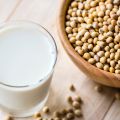10 Strange Things That Happen to Our Bodies in Winter

Cold weather can affect your body in surprising ways. It brings a lot of risks, especially for older adults, like heart attacks and uncontrolled blood sugar levels. While dry, cracked skin in the wintertime is extremely common, there are many other things cold weather can do to your body, some of which might seem good and others require attention. Keep reading to find out how winter influences our bodies.
1. You may have higher blood sugar levels
People with type 2 diabetes should be especially careful when faced with extreme weather conditions. Extreme weather be it intense heat or frigid temperatures, causes your body to release stress hormones like cortisol. This can lead to insulin resistance.
Diabetes patients, in particular, should adapt to cold and warm weather conditions slowly and avoid prolonged exposure to extreme conditions. They also should visit a general doctor and check their blood sugar levels more frequently to make sure that diabetic control is maintained.
2. You may get more migraines
Winter is known for causing vitamin D deficiency due to a lack of sunshine. For people prone to migraine attacks, low vitamin D levels can be a trigger. The drier conditions of winter that contribute to dehydration can also increase the risk of migraines. Another problem is the dramatic changes in temperature when you go outside or come in from the cold.
3. Outdoor activities can be dangerous
Sitting in the cold weather and jumping out of your seat isn’t actually a good thing. When cold, our muscles lose heat more quickly, which makes them contract and tighten throughout the body. This limits our mobility, range of motion, and the nerves in the region can more easily be pinched.
4. You may have more severe asthma attacks
Since viruses such as the cold or flu are more common during winter, people with asthma may have flare-ups. The cold and dry air outdoors act as an irritant and can also exacerbate asthma.
5. Your tongue works overtime
Frequent licking of your lips is an instinctive habit that kicks in when dry winds and freezing temperatures make your lips extremely dry. The saliva dries quickly, forcing you to keep licking. Plus, saliva contains enzymes that don’t evaporate and hang out on the skin, and these types of enzymes are too harsh for your delicate lips.
6. Your body builds up fat more effectively
In wintertime, we tend to store brown fat which actually burns calories and helps you stay warm when it’s cold. You can nudge up levels of brown fat by exercising in colder temperatures. There’s also an indication that keeping your melatonin levels high by sleeping well and avoiding nighttime exposure to blue light boosts brown fat.
7. Your eye surface dries out
Your eye surface is covered by a thin layer of tear film. A healthy surface gives us clear vision, comfort, and helps protect us from eye infections. But that layer is extremely sensitive to changes in the environment like dry air or wind.
Fortunately, you can protect this layer and keep your eyes more comfortable by using a humidifier, artificial tears, and donning on UV-blocking shades when you’re outside.
8. You may burn more calories
You’ve probably heard that working out in the cold can burn more calories. It’s true! Your body has to work harder to maintain its body temperature. When your body works harder, you reap the benefits of an increased metabolism.
9. You can get winter wrinkles
You can’t blame the only winter for more wrinkles, but you can blame environmental and lifestyle changes that happen during the winter season. These include the drop in humidity, a slowdown of your circulation, reduced cell renewal, exposure to dry winds, increased sun exposure due to reflecting UV rays off snow and ice, changes in dietary habits, and lower levels of activity.
10. You can get dehydrated
Everyone knows that it’s important to drink plenty of fluids in the summer, but it’s equally or even more important to stay hydrated during the dry months of winter. Yet people often fail to rehydrate properly since they simply don’t “feel” thirsty like they do in the warmer, humid months.
Other articles and publications:
Articles and publications of other companies:
- +1 (646) 270-9836
- Long Island City
- grantny.com













